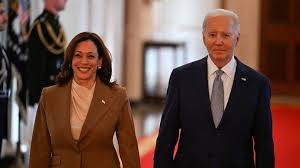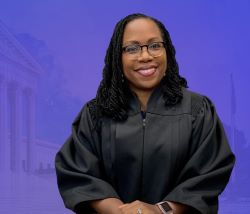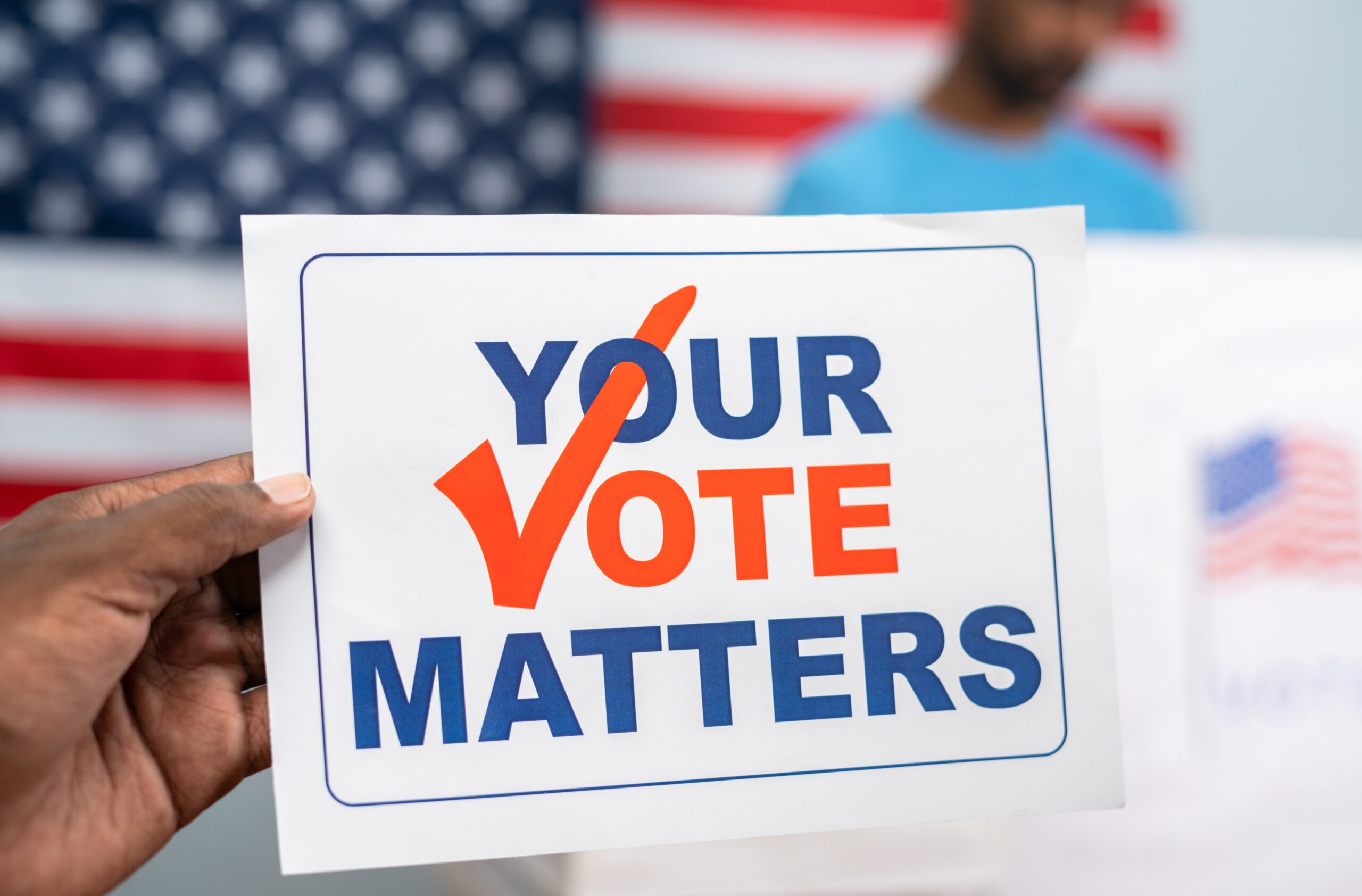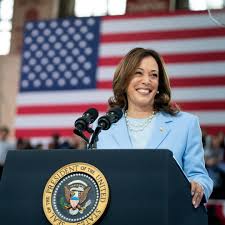In a compelling piece for Word in Black, Keith Boykin addresses the critical decision facing Black voters in the upcoming presidential election. He poses a stark choice: “If you want a president who attacks Black people, Trump is your guy. If you want someone to lead us forward, Kamala Harris is the choice.” Boykin delves into the accomplishments of Vice President Kamala Harris and contrasts them with the legacy of former President Donald Trump, emphasizing the importance of informed voting for sustained Black progress.

Kamala Harris’s Impact on Black Communities
Boykin begins by addressing common questions about Kamala Harris’s commitment to Black issues: “What is her Black agenda?” and “Why didn’t she do it during the last four years?” He promptly dispels these doubts by highlighting Harris’s substantial contributions as vice president. Under the Biden-Harris administration, significant legislative achievements include:
- Emmett Till Anti-Lynching Act: Harris played a pivotal role in passing this landmark legislation, making lynching a federal hate crime for the first time in over a century.
- Funding for HBCUs: A record $16 billion was allocated to Historically Black Colleges and Universities, strengthening educational opportunities for Black students.
- Support for Black Farmers and Businesses: The administration provided $2 billion to Black farmers and doubled the number of Black-owned businesses in America.
- Economic Advancements: With $2.8 billion directed towards Pell grants and need-based assistance, the Black unemployment and poverty rates have reached historic lows.
Additionally, the administration expanded the child tax credit, halving Black child poverty rates, capped insulin costs for seniors, expanded Obamacare, and canceled $168.5 billion in student loan debt for 4.8 million people. These measures have had a profound impact on Black communities, demonstrating Harris’s commitment to economic justice and health equity.
Boykin emphasizes the Biden-Harris administration’s focus on diversifying the judiciary, appointing more Black judges than any previous administration. This includes the historic appointment of the first Black woman to the Supreme Court, Justice Ketanji Brown Jackson. These appointments ensure that Black perspectives are represented in the judicial system for decades to come.

In stark contrast, Boykin critiques Donald Trump’s judicial appointments, noting that he was the first president since Richard Nixon to appoint no Black judges to the U.S. Courts of Appeals. The judges appointed by Trump have been instrumental in striking down laws and policies that benefit Black communities, underscoring the long-term implications of judicial appointments. Trump’s judicial appointments overview.
Boykin addresses the second question about Harris’s perceived inaction by explaining the limitations of the vice presidency and the broader governmental structure. He outlines the three branches of government—legislative, executive, and judicial—and highlights the challenges posed by a divided Congress and an unrepresentative Senate. The imbalance in Senate representation, where states like South Dakota hold disproportionate power compared to populous states like California, hampers progressive legislation. Senate representation disparities.
Boykin underscores the importance of voting in every election, not just presidential ones, to influence outcomes at all levels of government. He warns against complacency, emphasizing that elections have lasting consequences, especially concerning the judiciary. A Trump presidency could lead to the appointment of conservative judges who might block progressive policies for decades. Why every vote matters.
Highlighting recent Supreme Court decisions, Boykin illustrates how Republican-appointed justices have reversed key civil rights gains, from ending affirmative action in college admissions to overturning Roe v. Wade and ending protections for abortion rights. These decisions demonstrate the profound and enduring impact of judicial appointments on Black communities. Supreme Court decisions affecting Black Americans.
We’re seeing it already. In just four years in office, Trump appointed one-third of the U.S. Supreme Court and 242 federal judges. That’s why so many of Joe Biden’s policies have been struck down.
Trying to go to college? The U.S. Supreme Court ruled 6-3 last year that colleges and universities can no longer use race in admissions to create a more diverse student body. All six justices who killed affirmative action were appointed by Republican presidents. The three Democratic-appointed justices dissented.
Struggling to pay your student loans? The Supreme Court killed student loan debt relief that would have helped 40 million Americans. Once again, all six justices were Republican appointees.
Need to have an abortion? The Supreme Court ruled two years ago that women no longer have reproductive rights to control their own bodies. All six justices who overturned Roe v. Wade were Republican appointees.
Did you fall behind on your rent during the pandemic? The Supreme Court ended the nationwide eviction moratorium that protected millions of American renters from being kicked out of their apartments. Once again, a 6-3 Republican decision.
Want to vote for a Black member of Congress? The Supreme Court ruled that Republicans can use a racially gerrymandered voting map that disenfranchised Black voters in South Carolina. But all six Republican-appointed justices allowed the map.
And it’s not just the Supreme Court.
Looking to launch a Black business? A federal judge in Texas ruled that the Minority Business Development Agency, a 55-year-old agency, is now illegal because it discriminates against white people. Once again, the judge was appointed by Donald Trump.
Need startup money for a new firm? A federal appeals court in Georgia ruled that a venture capital fund for Black women called the Fearless Fund can no longer focus on helping Black women. Both judges who voted against Black women in the 2-1 decision were appointed by Donald Trump.
Need help on the farm? A federal judge in Florida stopped President Biden’s debt relief program that helped Black farmers because it was unfair to white farmers. The judge was appointed by Republican President George Bush, exposing the influence of conservative jurists appointed years ago.
Then, just a few days ago, a Trump-appointed federal judge in Texas wouldn’t even allow emergency disaster assistance for Black farmers because it was unfair to white men.
Biden appointed more Black judges than the last four Republican presidents combined
Republican-appointed judges in the state courts are just as dangerous for Black people.
Want to wear your natural hair? A Texas judge ruled that a school district could force high school student Darryl George to cut his locs, despite the state’s CROWN Act that prohibits hairstyle discrimination. The judge ran as a Republican.
Want to protest racism? A Missouri judge just expunged the records of the infamous St. Louis couple who previously pleaded guilty to assaulting Black Lives Matter protesters with guns. The judge was appointed by Missouri’s Republican governor.
Boykin’s message is unequivocal: the choice is clear for those who care about Black America’s future. Kamala Harris, despite the systemic challenges, has a proven record of advancing Black interests and fostering progress. In contrast, Donald Trump represents a threat to these gains, with a history of appointing judges who undermine civil rights protections. As Boykin aptly puts it, “If you want a president who has spent his life attacking Black people, Trump is your guy. If you want a president who won’t be able to accomplish everything we want but will move us in the right direction and has a record to prove it, Kamala Harris is the one.” By actively participating in every election and supporting leaders committed to Black progress, voters can help shape a more equitable and just future.
For more insights and detailed information on the topics discussed, explore the following resources:
- Emmett Till Anti-Lynching Act
- Funding for HBCUs
- Support for Black Farmers
- Justice Ketanji Brown Jackson’s Nomination
- Trump’s Judicial Appointments Overview
- Supreme Court Decisions Impacting Black Communities
- Why Every Vote Matters
Keith Boykin is a New York Times–bestselling author, TV and film producer, and former CNN political commentator. A graduate of Dartmouth College and Harvard Law School, Keith served in the White House, cofounded the National Black Justice Coalition, cohosted the BET talk show My Two Cents, and taught at the Institute for Research in African-American Studies at Columbia University in New York. He’s a Lambda Literary Award-winning author and editor of seven books. He lives in Los Angeles.































